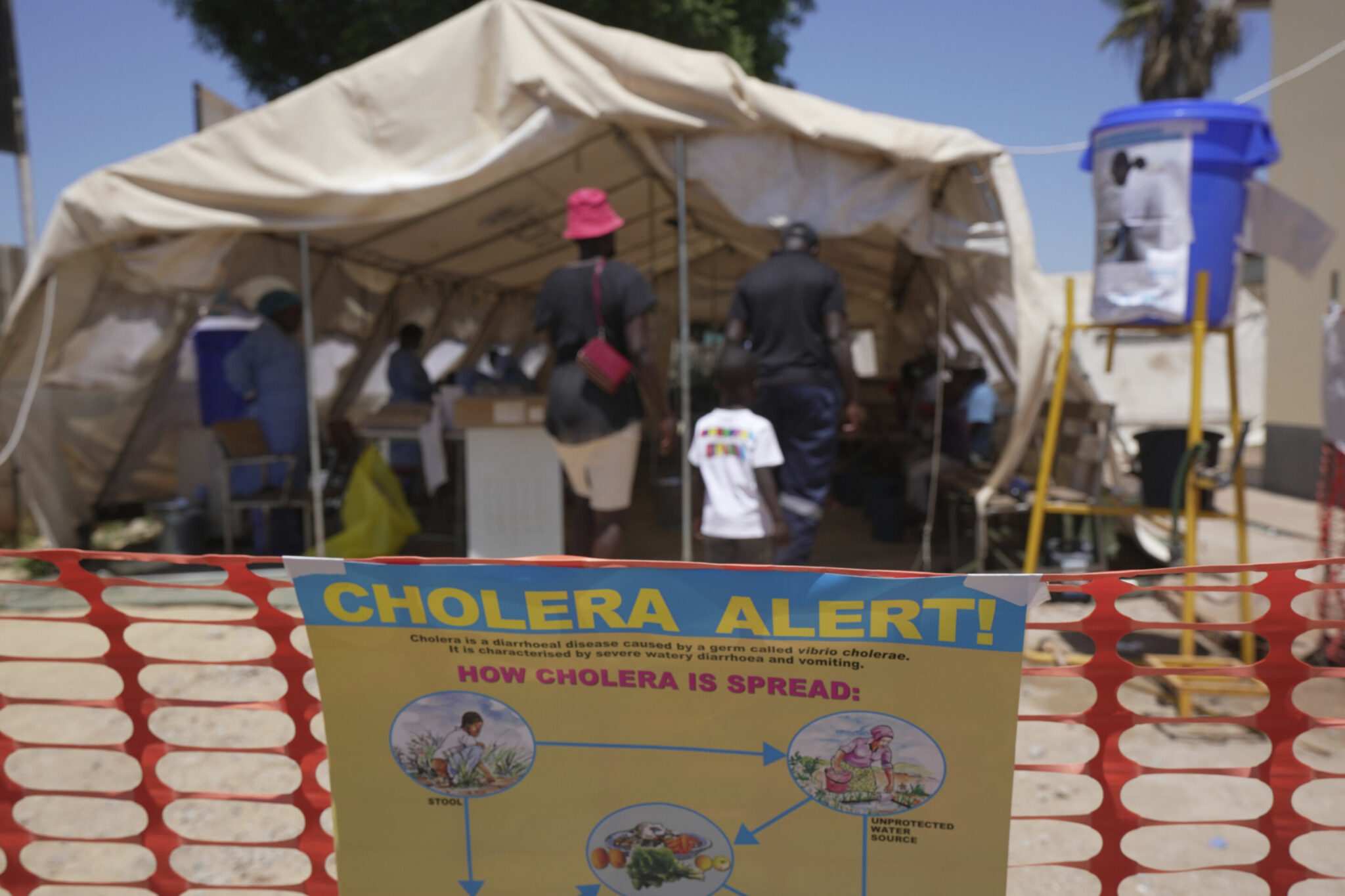Zimbabwe: The Government of the nation is seeking measures to strengthen systems as part of its effort to address the current cholera outbreak in the short and long term. The measures involve water, sanitation and hygiene (WASH) infrastructure to ensure that communities have access to safe drinking water and basic sanitation.
Currently, the World Health Organisation has awarded the 2.2 million doses. The first batch of vaccines is expected to reach the country by next week. The vaccine is effective in preventing cholera and provides 85% protection for the first six months after vaccination.
Zimbabwe has been struggling with a cholera outbreak since Feb 2023 and has recorded 18,332 suspected cholera cases and 329 suspected deaths. Over 2,145 cases and 71 deaths were confirmed because of cholera.
Considering the same, the Health and Child Care Permanent Secretary – Dr Aspect Maunganidze, said that the government was seized with addressing the determinants and drivers of cholera, including perennial water shortages, breakdown of sanitation infrastructure, improving rural water and sanitation coverages and enforcement of city by-laws.
The permanent secretary emphasised that there is a need to increase the supply of potable piped water without interruptions at the household level. He mentioned that where there is no council water, alternative sources should be availed for the affected communities through water trucking, and the private sector should be assisted.
Dr Maunganidze added that in Oct, the Ministry of Health drilled eight boreholes at clinics in cholera hotspots in Buhera. Since then, more boreholes have been drilled across the country in direct response to the cholera outbreak.
Secretary Maunganidze said that there were plans to drill more boreholes in the hotspots. As per the data, out of the 63 districts, 60 were reported as cholera cases, with other districts such as Chiredzi, Buhera, Mazowe and other districts within Harare province being more affected.
He added that they have ensured the provision of commodities to strengthen point-of-use treatment, such as JIK, aqua tabs and waterward while encouraging communities to boil drinking water where possible for use at the household level as a culture and regular practice.
Environmental Health Technicians across the country have also collected samples of water and tested the quality while also disinfecting contaminated wells and homes to minimise the spread of cholera.
Recently, the government has also launched the Chenesa campaign that is being rolled out in partnership with the Environmental Management Agency (EMA) with the Civil Protection Unit (CPU) coordinating the deployment of trucks, refuse compactors and other heavy machinery.
Under the operation, dozens of dumpsites were cleared in Harare as these were identified as a major driver of the cholera outbreak.
Zimbabwe has started deploying the Oral Cholera Vaccine (OCV) to hot spot districts, although this will be a temporary measure.

